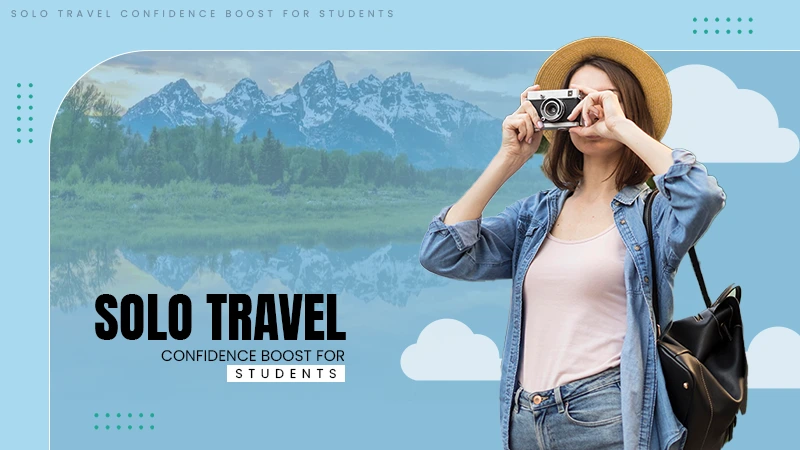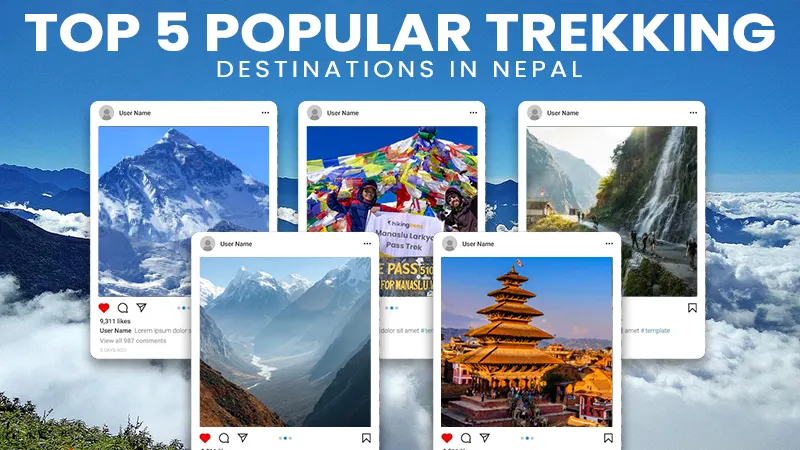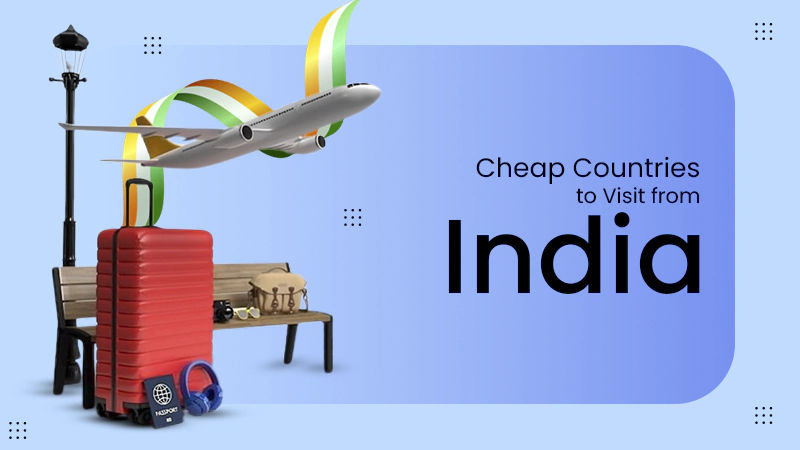
Traveling alone might sound intimidating for college students juggling assignments, group projects, and upcoming exams. Yet, stepping out into the world without companions can become one of the most transformative experiences in a student’s life. It combines real-world problem-solving with self-discovery, skills that echo far beyond the classroom. For many undergraduates, finding Excel homework help in the middle of busy academic schedules can ease academic pressure. With school tasks managed, the freedom to embark on a solo journey becomes more realistic and rewarding.
Exploring new places independently pushes students into situations that test adaptability and resilience. Each decision, from navigating public transit in a foreign country to finding affordable accommodation, turns into a chance to practice resourcefulness. These moments mirror challenges in academic life: uncertainty, deadlines, and unexpected obstacles.
Building Self-Reliance Through Travel
When students travel alone, they gain firsthand exposure to unfamiliar environments. In these moments, there’s no one else to rely on for directions, language translations, or negotiating with locals. Every choice has to be theirs. This sense of ownership builds confidence in a way textbooks cannot replicate.
It’s not just about practical survival, though. Solo travel cultivates emotional independence. Students often leave home for college, but many still lean heavily on peers, professors, or family. Traveling alone forces them to face challenges like loneliness, decision-making fatigue, and cultural differences directly. Managing these emotions with maturity strengthens self-trust, a cornerstone of personal growth.
Financial Responsibility on the Road
Money management is another area where students sharpen valuable life skills during solo trips. With limited budgets, they must prioritize essentials (transportation, food, lodging) while still leaving space for experiences that make travel meaningful. Budgeting a two-week trip in Southeast Asia or Europe can become a practical extension of classroom lessons in economics or personal finance.
Learning to stretch resources while still enjoying the journey helps students become more conscious spenders back at home. That ability transfers seamlessly into managing student loans, scholarships, or part-time income. The discipline of making financial choices under pressure builds a maturity that benefits both academic and professional life.
Communication Skills Across Cultures
Students traveling solo quickly realize the importance of communication, especially when language barriers exist. Gestures, translation apps, and patient listening become tools for navigating new cultures. Even in English-speaking destinations, accents, slang, and cultural cues can be difficult to grasp.
These moments sharpen interpersonal skills, teaching students to listen more attentively and adapt their communication styles. In classrooms or future workplaces, that adaptability makes them stronger collaborators. Employers value graduates who can bridge gaps across diverse teams, and solo travel often provides a crash course in exactly that.
Confidence Through Problem-Solving
One of the greatest gifts of solo travel is the opportunity to practice problem-solving under pressure. Missing a train, losing a map, or dealing with last-minute cancellations can feel overwhelming, yet students often surprise themselves with how well they adapt. Each hurdle overcome adds a layer of self-assurance.
Consider a student who misses a bus connection while backpacking through Spain. The stress is real, but once they successfully navigate an alternate route, the experience becomes proof of resilience. The next time they face uncertainty, they can draw on the memory of that triumph.
Expanding Worldviews
Beyond confidence, solo travel offers something just as important: perspective. When students are immersed in another culture, they learn how differently people live, work, and value time. Meeting locals, trying unfamiliar foods, and engaging in customs broadens their worldview in ways lectures alone cannot achieve.
This cultural immersion also builds empathy. Students recognize that their struggles are not universal, and they develop an appreciation for the challenges and achievements of others. Such a perspective enriches academic discussions, creative projects, and even everyday interactions with peers from different backgrounds.
Time for Self-Reflection
Traveling alone provides an unusual gift: uninterrupted time with oneself. Students used to constant noise from roommates, study groups, or campus events and often find clarity in moments of solitude. Long train rides, quiet meals, or hours wandering city streets become spaces for reflection.
These pauses give them time to consider their goals, values, and ambitions. Many students return from solo trips with newfound clarity about career paths, academic interests, or personal priorities. That self-awareness strengthens decision-making and prevents aimless drifting through college years.
Building Lasting Confidence
The confidence gained from solo travel doesn’t disappear once the trip ends. Students carry it into classrooms, internships, and job interviews. The stories they collect become proof of independence and adaptability.
This lasting confidence becomes an advantage in professional life. Employers often ask candidates about challenges they’ve overcome. A student who can explain how they managed an unexpected delay in another country not only demonstrates problem-solving but also conveys composure and initiative.
Practical Tips for Students Considering Solo Travel
While the benefits are numerous, successful solo travel requires preparation. Students should consider:
- Start small. A weekend trip within the country can provide the first taste of independence before attempting international travel.
- Budget carefully. Track expenses daily to avoid overspending.
- Stay safe. Share itineraries with trusted contacts and use secure accommodations.
- Balance freedom with structure. Plan key logistics but leave room for spontaneous experiences.
- Use technology wisely. Apps for maps, translations, and budgeting can make travel smoother without replacing personal interactions.
The Academic Connection
Some students hesitate to travel due to demanding coursework. Yet, experiences abroad can complement academics. Writing essays, delivering presentations, or contributing to classroom debates becomes easier when enriched by personal stories. Professors often value real-world insights, and peers find global perspectives engaging.
In many ways, solo travel is an education in itself. It teaches lessons in independence, responsibility, and adaptability that no textbook can fully capture. By stepping out of their comfort zones, students become not only stronger learners but also more capable individuals prepared for life beyond graduation.
Conclusion
Solo travel offers students much more than scenic photos and souvenirs. It provides a crash course in confidence, resilience, and cultural awareness. Each challenge on the road turns into a chance for growth, and each success strengthens self-belief. With careful planning and an open mind, students can transform their journeys into milestones that shape both academic performance and personal development.
The world becomes a classroom when traveled alone, and confidence is the most valuable souvenir a student can bring back.







